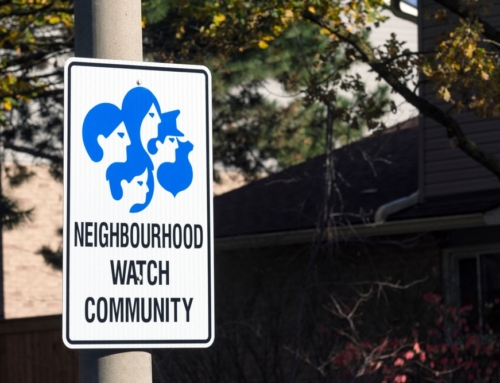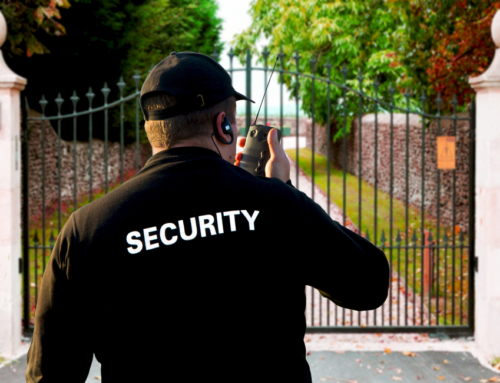Home Safety Tips from Corporate Security Professionals in Los Angeles
We all know that many high-profile corporate executives, celebrities, sports figures, entertainers etc. have their own security teams. Whether you call them security, bodyguards, executive protection agents, these security professionals have a wealth of information about personal safety and security.
According to statistics, Los Angeles has a crime rate twice the national average, and crime in the city rises six percent, year over year. In 2021 alone, there were over 90,000 property crimes reported, giving you a 1 in 42 chance of becoming a victim of such crime in the City of Angels. Nationwide, there are about 2.5 million burglaries every year, and two-thirds of those are home invasions. While a majority of those happen in daylight, and a small percentage include violence, it is important to be aware of the dangers and know what to do if you find yourself in such a situation.
What do top-of-the-line security professionals say about basic home security?
How do you protect your family? What are some expert home safety tips to increase the security of your home?
The safety of your family, your home and yourself is a primary concern for any responsible person. Many people wonder, “What would I do if my home was invaded? How do I best prevent an intruder? What should I do to prepare for the worst?”
We surveyed our top protection agents for home safety tips and here are some of their suggestions:
What is the best way to deal with a home intruder?
Always call 911 immediately if you suspect an intruder, give your address right away, and inform them if you have any weapons in the house. Leave the phone on speaker mode so the incident is recorded.
Having a properly constructed safe room is the smartest solution, as this prevents confrontation and keeps the family safe. This can be as small as a closet with reinforced walls and a reinforced door that locks from the inside — to a vault of reinforced concrete, equipped with camera monitors, advanced communication devices, survival supplies, and fortified to withstand the blast of a bomb.
But let’s be realistic. Many spaces can be converted into a basic safe room, including bathrooms, which have the added benefit of bathroom facilities. Reinforcing the walls and door to deter entry, is a smart investment. If you detect an intrusion, the best course of action is to rush the whole family, and ideally the pets, into the safe room, and contacting law enforcement authorities immediately as described above.
Other than a safe or “panic” room, most basic home security focuses on intruder prevention and includes locks on windows and doors that work well, external motion-activated lighting, obvious cameras, alarms, a dog, etc. But what does one do if an intruder has made their way into the home, and there is no safe room? In such instances, many have prepared for this scenario by arming themselves with various weapon systems, non-lethal deterrents, and flashlights.
No matter the method of dealing with this type of incident, an exact plan or plans is highly recommended. The plan must include proper training on any equipment or weapon systems, so they do not pose a danger to oneself or one’s family but remain an accessible, reasonable solution to manage a potentially life-threatening emergency. No plan is perfect and there is no “one-plan-fits-all” solution.
Basic medical equipment, and training in its management, is also highly recommended and could save a life in an emergency.
All probable scenarios should have a plan
A PRECISE PLAN should be made for responding to various potential scenarios. These should be broken down into two categories -,Shelter in Place or Evacuate.
Shelter in Place would be securing oneself and one’s family in the safe room.. Evacuate could be due to a fire, for example. These plans should be considered prior to any potential situation. Deciding in the moment of urgency can carry significant negative consequences.
How do I prevent a home invasion?
- Install a home security alarm system.
- Install cameras to all ingress/egress points and exterior planes of the structure to be protected.
- Install ample external lighting in dark areas.
- A dog is a good option as barking acts as an alarm or audible deterrent. If one has a camera with a microphone/speaker such as a Ring, one can use this as a deterrent. Protection dogs can also be a viable option.
- Put dead bolts and anti-pick locks on all external doors. A smart lock is an option that allows one to lock doors when away from the home as needed. If there is a small window near a lock, a dead bolt keyed on both sides is a good option.
- Warning signs such as alarm company or beware of dog can also be a good visual deterrent.
How do I prepare for other emergencies such as natural disasters?
Fire, earthquake, flood, and dangerous-weather preparedness is recommended for household in areas with these risks.
- Store non-perishable food and water, enough for 3-5 days for the whole family including pets.
- Multi-story structures should include a laddered escape route for upper levels.
- Battery powered (or hand-crank) radio.
- Keep flashlights charged with fresh batteries in each room.
- First-aid kits inside and outside the structure.
- Have a predetermined meeting place for the family if disaster strikes and members are separated with no long-distance communication possible.
- Fire extinguishers charged and placed throughout the house.
- Evacuation planning in the event of structural damage from mudslides, earthquake, or harsh weather, including a “go bag” and transportation.
- All family members should take some time to minimally learn basic first aid / CPR training.
How do I protect my valuables?
Keeping your most valuable items in an offsite facility with a biometric safe is a good option. Otherwise, a well-hidden or fixed/immovable safe should contain all valuable jewelry, money, important paperwork, passports, and other valuables. It should be fireproof and have multiple locking mechanisms (biometric, key, combo, etc.).
Protecting one’s home, loved ones and valuables must be customized to each household, and should employ best practices for any possible scenarios. Listing out various possibilities and what plan should be utilized as far as Shelter in Place or Evacuate prior to an event will set the stage for successful mitigation of the incident.
Here are some possible ideas to consider:
What if someone is trying to break in through a window?
How do we deal with a team of burglars that have entered the home?
If I come home and find someone in the house, what do I do?
…continue the list to cover any and all your concerns.
Now come up with a plan to manage each of these. Discuss them, write them down, and then purchase the required items, install the devices, learn to use any tools involved, and then review these at regular intervals.
One’s home should be a place of sanctuary and free from the distraction of external threats. Preparedness is the key in achieving this ideal.
Believing in one’s ability to decide in the moment during a crisis may be a disastrous choice and can only be avoided by confronting the possibilities and taking action to organize for and practice for any worst-case scenarios, within reason.
Putting this off until later because of procrastination, feeling uncomfortable about discussing negative issues, and/or not prioritizing safety are the reasons emergencies become disasters. Proper preparation and planning make emergencies into mere inconveniences or prevent them entirely.
Nothing is more important than your health, security, and safety. Threats to these impinge on your ability to live life and pursue your goals and drams. Implement these home security tips so that you are always prepared.
Law Security and Investigations, Inc. is a Los Angeles based, global security firm that builds and implements white-glove, customized security strategies for at-risk corporations, celebrities, sports figures, high/ultra-high-net worth individuals, schools, churches, synagogues, and other institutions, specializing in manpower.






